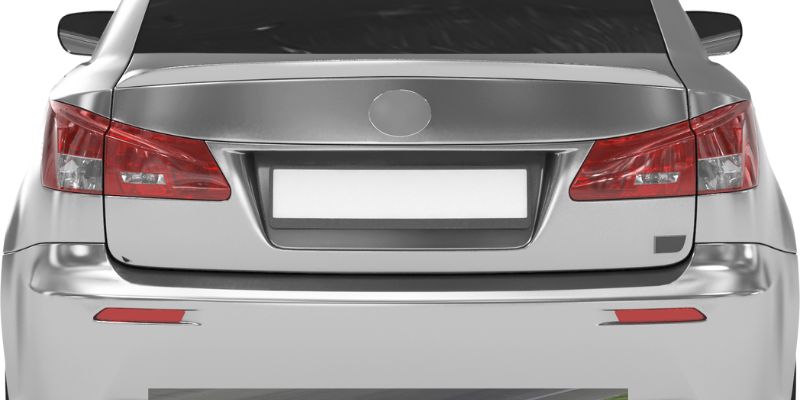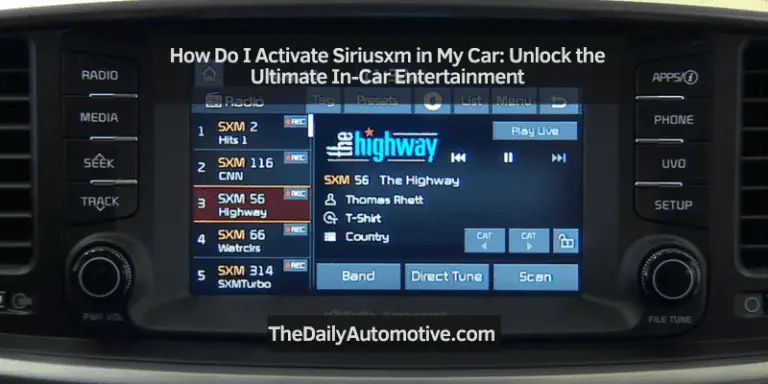Can I Drive a Car Without Plates: Key Facts and Tips
No, it is illegal to drive a car without plates. Driving without plates violates the law and can result in fines or penalties.
It is essential to have valid license plates displayed on your vehicle at all times to comply with the law and avoid any legal consequences. As a responsible driver, it is crucial to understand the legal requirements for operating a vehicle.
License plates serve as a means of identification and are necessary for law enforcement, toll booths, and parking authorities to identify and track vehicles. Therefore, driving without plates not only poses a legal risk but also undermines the ability to enforce traffic laws and regulations. Understanding and abiding by these regulations is essential for safe and legal vehicle operation.
Driving Without Plates: An Overview
Driving a car without plates is a topic that raises various legal and practical considerations. Understanding the legal requirements for vehicle plates and the consequences of driving without them is essential for any vehicle owner or operator. In this guide, we will delve into the intricacies of driving without plates and what it entails.
Legal Requirements For Vehicle Plates
Every state or region has distinct laws and regulations regarding the display of license plates on motor vehicles. Vehicle owners are typically required to obtain and affix valid license plates to their vehicles before operating them on public roads. These plates serve as a means of identifying and registering the vehicle with the appropriate authorities. They also display pertinent information such as the vehicle’s registration number and expiration date.

Consequences Of Driving Without Plates
Driving a car without the proper license plates can lead to a myriad of legal issues and penalties. Law enforcement agencies have the authority to issue citations, fines, or even impound the vehicle for non-compliance with plate regulations. Additionally, operating a vehicle without valid plates may result in difficulties during routine traffic stops, as it can be construed as a violation of the law.
Understanding The Regulations
When it comes to driving a car without plates, it’s essential to have a clear understanding of the regulations in place. From mandatory plate issuance after vehicle purchase to temporary permits and exemptions, various laws govern this aspect. Let’s delve into the specifics to ensure compliance with the necessary requirements.
Mandatory Plate Issuance After Vehicle Purchase
After purchasing a vehicle, it is mandatory to obtain license plates before driving it on public roads. This process involves registering the vehicle with the relevant state or department of motor vehicles (DMV). Upon completion of the registration, the authorized agency will issue license plates specific to the vehicle, enabling legal operation on the road. Failure to adhere to this regulation can result in penalties and legal repercussions.
Temporary Permits And Exemptions
In certain situations, temporary permits or exemptions may be available to drive a car without plates. These permits are typically short-term solutions that allow for the legal operation of a vehicle while awaiting the issuance of permanent license plates. It’s crucial to understand the specific criteria and duration of these temporary permits, as well as any associated fees or documentation requirements. Additionally, exemptions for specific vehicles or circumstances may be available, but it’s essential to consult with the local DMV or relevant authorities to ensure compliance with the applicable regulations.
Risks And Consequences
Driving a car without plates is a serious offense that comes with various risks and consequences. While it might seem convenient to drive without plates for a short period, it can lead to legal implications and hefty penalties. Understanding the risks and consequences of driving without plates is crucial to making the right decision.
Legal Implications Of Driving Without Plates
Driving a vehicle without plates is illegal in most jurisdictions. Plates serve as a means of identification and are required by law to be visibly displayed on the front and back of the vehicle. When a vehicle lacks plates, it makes it challenging for law enforcement officers to identify the vehicle and hold the driver accountable for any violations. Additionally, operating a vehicle without plates may result in the vehicle being considered unregistered and uninsured, further exacerbating the legal ramifications.
Penalties And Fines For Non-compliance
Individuals caught driving without plates are subject to severe penalties and fines. These consequences can include citations, impoundment of the vehicle, and potential suspension of driving privileges. The fines for driving without plates can vary depending on the specific laws in the given jurisdiction, but they often amount to hundreds of dollars. In addition to the financial burden, driving without plates can also result in points being added to the driver’s license, leading to higher insurance rates and potential license suspension.
Avoiding Legal Troubles
Driving a car without plates can lead to legal troubles and penalties. However, there are alternative transportation methods and temporary plate options to avoid potential legal issues.
Alternative Transportation Methods
When you need to transport a vehicle without plates, alternative transportation methods can be considered. These may include hiring a professional auto transport service, utilizing a car trailer, or arranging for a temporary tow to the desired location. Exploring these options can help prevent potential legal consequences when driving a car without plates.
Temporary Plate Options And Guidelines
Temporary plate options provide a legal and temporary solution for driving a car without plates. Several states offer temporary or transit plates for newly purchased vehicles or during the registration process. Following the guidelines for obtaining temporary plates is vital to ensure compliance with the law. These guidelines may include providing proper documentation, paying necessary fees, and displaying the temporary plates as required.

Tips For Compliance
Yes, it is generally illegal to drive a car without plates. Plates are required to register and lawfully operate a vehicle. Driving without them can lead to fines or other legal complications. Make sure to comply with the law and obtain the proper plates before driving.
Applying For Temporary Plates
Proper Display And Verification Of Plates
Insurance Considerations
When it comes to driving a car without plates, there are several important insurance considerations that drivers need to be aware of. Without proper insurance coverage, driving a vehicle without plates can lead to serious legal and financial consequences. It’s crucial for car owners to understand the impact on vehicle insurance and how to ensure coverage when driving without plates.
Impact On Vehicle Insurance
Driving a car without plates can have a significant impact on your vehicle insurance. Insurance companies typically require vehicles to have valid license plates in order to provide coverage. When a vehicle is driven without plates, it may be considered a higher risk and could result in higher premiums or even denial of coverage in case of an accident.
Ensuring Coverage Without Plates
It’s important to ensure that you have the necessary insurance coverage even when driving without plates. One option is to obtain temporary or transit insurance that specifically covers vehicles without plates. Another option is to contact your insurance provider to understand any potential options for coverage in such situations.
Frequently Asked Questions Of Can I Drive A Car Without Plates
Is It Legal To Drive A Car Without Plates?
Yes, it’s illegal to drive a car without proper registration and license plates. Doing so may result in fines, penalties, and legal consequences. It’s important to follow the state’s requirements for vehicle registration and display of license plates for legal driving.
What Should I Do If My Car Has No License Plates?
If your car doesn’t have license plates, it’s essential to address this immediately. Contact the appropriate local motor vehicle agency to obtain temporary or permanent plates. It’s crucial to comply with the registration and plate display laws to avoid potential legal issues.
Can I Drive A Newly Purchased Car Without Plates?
Typically, you cannot drive a newly purchased car without plates. Most states require temporary tags or a dealer’s plate to be displayed until permanent registration and plates are obtained. It’s important to adhere to the laws and regulations regarding vehicle registration and plate display.
Conclusion
To sum up, driving a car without plates is illegal and can lead to heavy fines and penalties. It’s important to follow the local laws and regulations regarding vehicle registration and plates to avoid any legal issues. Always ensure your car is properly registered and has visible plates before hitting the road.








